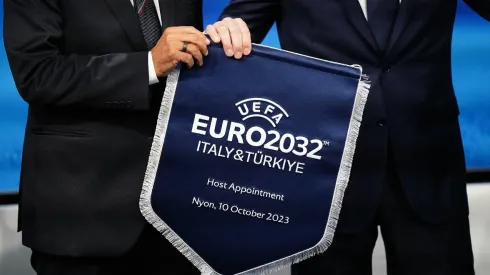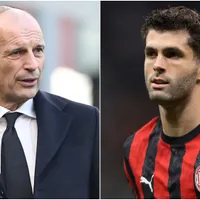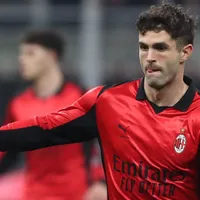Serie A CEO Luigi De Siervo has issued a stark warning regarding Italy’s preparations for co-hosting the Euro 2032.
Speaking at the Festival della Serie A in Parma, De Siervo emphasized the critical need for Italy to modernize their stadiums by October 2026.
Failure to do so, he cautioned, could result in the country losing its assigned host games for the tournament.
Initially, Italy aspired to host the entire 2032 European Championship independently. However, persistent bureaucratic challenges and red tape have stymied efforts to renovate or build new stadiums, making solo hosting impractical.
Now, unless they take rapid and decisive action to upgrade the infrastructure, even the prospect of co-hosting is under threat.
“If we don’t bring up our stadiums up to code by October 2026, we risk losing the Euto 2032 host games that UEFA assigned to us,” he declared. “The matter of stadiums is crucial and we cannot afford to fail. We are down to the last chance because by October 2026, UEFA will verify our arenas.”
“At this moment, we do not want to apportion blame. But we must prove that we are united and find the economic resources and responsibility that we need. The infrastructures must not be built just for big events, but always.”

Italy will co-host Euro 2032 with Turkey
Bureaucratic hurdles and financial strains
The struggle to modernize Italy’s soccer infrastructure is not new. Bureaucratic delays and local council disputes over stadium reconstruction or new builds have long entangled several top clubs.
The list includes Milan, Inter, Fiorentina, Napoli, Roma, and Lazio. Fiorentina, for instance, have taken legal action against the local council for failing to deliver promised funding for the Stadio Artemio Franchi’s improvements.
Clubs are eager to invest in their facilities; but local authorities’ desire to maintain control over these structures often obstructs progress. This standoff hampers efforts to modernize, leaving Italy’s soccer infrastructure lagging behind other European nations.
However, the issue extends beyond Serie A clubs. Newly promoted teams like Como face similar challenges. They often have to play their initial home games in alternative venues while their stadiums undergo necessary upgrades. De Siervo highlighted this problem, pointing out that lack of investment in stadiums creates significant hurdles when clubs ascend to higher leagues.
Criticism as efforts for modernization lead to nothing
RedBird founder Gerry Cardinale, who acquired AC Milan in 2022, recently revealed that he is eager to revolutionize Italy by modernizing stadium infrastructure. Cardinale aims to build a new 70,000-seater stadium for the Rossoneri and expand this model to other Serie A teams. He believes that upgrading stadiums is crucial for closing the gap between Serie A and more lucrative leagues like the English Premier League.
“I’m going to create a company that’s going to build this stadium [for AC Milan], and then, frankly, I want to take that company and have it go build stadiums for all the other teams in Serie A,” Cardinale stated. “Because on one element I wear my AC Milan hat and we want to win the Scudetto. On the other hand, I want to help Serie A narrow this gap [to the English Premier League].”
In the meantime, prominent figures in Italian soccer have already voiced their frustrations. The Azzurri legend Giorgio Chiellini recently criticized the authorities for obstructing the Milan rivals’ plans to build a new stadium. Despite clear plans to replace the aging San Siro, the clubs have faced continuous bureaucratic delays and an injunction against demolishing the iconic venue.
Inter and Milan have since pursued separate paths for new stadiums in two different locations. Chiellini lamented the situation, stating, “If they can’t even get a stadium built in Milan, then it means we’re really doing badly. Milan is the engine of Italy. It’s the face of Italy in Europe and the world.”
Photo credit: IMAGO / PA Images















